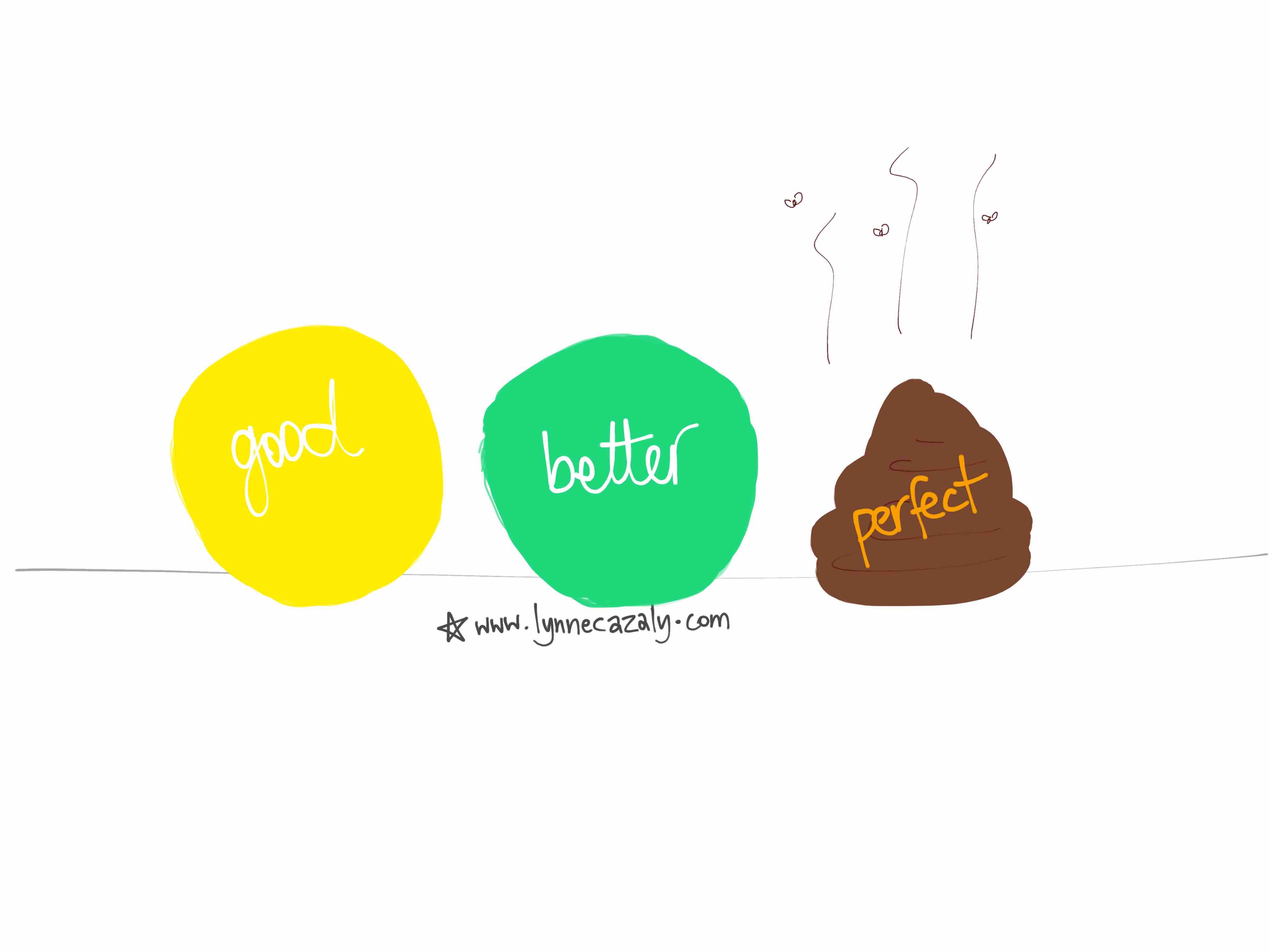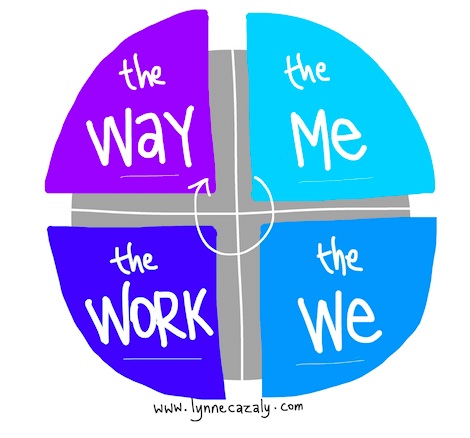That New Year 'stink' of perfectionism and expectations
 Wednesday, January 2, 2019 at 6:30PM
Wednesday, January 2, 2019 at 6:30PM  If you’re reflecting and resetting goals with a new year upon you and then reading all those posts about needing to make things measurable and achievable and to do this and that, please… hang on a moment. It’s being reported more frequently in those 'new year/new you' types of articles and stories that many of us don’t quite hit or stick with the resolutions as we’d like to. That doesn’t mean we shouldn’t attempt a reset or a new way of thinking, living or working.
If you’re reflecting and resetting goals with a new year upon you and then reading all those posts about needing to make things measurable and achievable and to do this and that, please… hang on a moment. It’s being reported more frequently in those 'new year/new you' types of articles and stories that many of us don’t quite hit or stick with the resolutions as we’d like to. That doesn’t mean we shouldn’t attempt a reset or a new way of thinking, living or working.
But can you smell it? Lots of things stink of perfectionism and expectations at this time of year.
Perfectionism isn’t a one size fits all; there are different types of perfectionism, but the one that I see running rampant at this time of year with resolutions and drives for new habits and resetting on our hopes and dreams, is what’s known as ‘socially prescribed perfectionism’.
Hey, don’t get me wrong. I want to change my life too; get fitter, eat better, live better, etc. We can all have aspirations and goals and the start of a new year is a great time to do that.
But my point is, perfectionism is poison. I’ve been researching it over the past year or so as I’ve been writing the book ‘ish: The Problem with our Pursuit for Perfection and the Life-Changing Practice of Good Enough’.
The book tackles the problems we face when we chase the elusive ‘perfect’ - whether we’re preparing a report or presentation at work, making something or working on any of our projects in life, including ourself. Excellence, quality and continuous improvement are important. But the pursuit of perfection …not so much.
Our drive to make things (including ourselves) look, feel or seem perfect is dangerously on the rise and has dire consequences for how we feel about ourselves and how well we live, work and collaborate with others.
New year’s resolutions included.
Perfectionism is on the rise
So back to this socially prescribed perfectionism; it’s when we (usually, wrongly) believe or perceive that ‘other people’ hold high standards for us… and we will indeed struggle to achieve them. Who are these other people, anyway? And none of us can achieve perfection because it doesn’t exist!
You see, of all the types of perfectionism, this is the one that's on the rise. Up 33% over the years between 1989 - 2016 when 41,000-ish people were studied. We are increasingly believing that others set or hold high standards and expectations for us that we need to achieve… or else.
The other types of perfectionism - where we hold high standards for ourselves (up 10%), and where we have high standards for others (up 16%) - are also both on the rise, but only at half the rate or less of this one, the socially prescribed perfectionism.
The research associated with the increases in perfectionism reveal that yes, the environment is more competitive. The environment we see and experience on social media, the job and career environment, the mainstream media, our local community, at school or university, at the beach, on the sports arena, on the road, in the air and at the holiday destination. It’s all more competitive.
Coupled with this, expectations are more unrealistic. Someone showing you their super-fit body, their multi-million dollar startup or their make-up free selfie sets an expectation that we too can achieve that if we’d only do the program, use the product or like and share the post.
Beware The Curse of Discernment
Just remember that the Curse of Discernment is at play here too. This is the idea, the reality, the science - from Barry Schwartz’s ’The Paradox of Choice: Why More is Less' - that as we have ‘contact with items of high quality’, we begin to suffer the ‘curse of discernment’. Lower quality things that used to be acceptable to us are no longer good enough. The base point keeps rising and ‘expectations and aspirations rise with it.’ Higher experiences are met with higher expectations and we want higher experiences which drive higher expectations. It’s an endless loop. Unless…
Unless you be aware of it.
You ain't broken
Just take every Instagram post, social media share and mainstream media article encouraging you to ‘live bolder’ and ‘be better’ and ‘change this’ or ‘become that’ with a splash of reality and science.
We’re being conned that we need to 'be better' or ‘get more' or to fix our broken selves. And it’s just not true. We are wonderful as we are; imperfectly human, changing, growing and living.
There are many other movements underway that are showing us how we can snap out of this push for more/better/perfect and go for things like slower living, detoxing, tidying, minimising, simplifying, switching off from technology and reconnecting with humans … and other trends and ways of living and working. There’s an awakening going on. Are you on to it or are you still on the drug of more, better, perfect at all costs?
There are many problems of going for perfect; we’d do better to care less and be a bit more ‘ish’ – ish means somewhat, more or less, to some extent - because it's a w-a-y more flexible, helpful and happier way to think and work.
ish. Near enough is so often good enough on the things that don’t matter as much as we think they do. I think we need to care less about more, and care more about less. Across the board, in so many aspects of life. (Ok if you’re a surgeon, an engineer, a pilot, or manufacture anything, please continue to adhere to your increasing standards of quality.)
But if you’re going to make this the year of anything, make it the year of ish; where you ease the pressure off yourself - and others - and stop buying in to the perceived pressure for perfect anything. Relax the expectations of how things have to be or what they need to look like, feel like and when it needs to be done by. Live a life more ish-ly.
Reference: Psychologists Paul Hewitt and Gordon Flett’s - The ‘Multidimensional Perfectionism Scale’ and research by Thomas Curran and Andrew Hill.

















